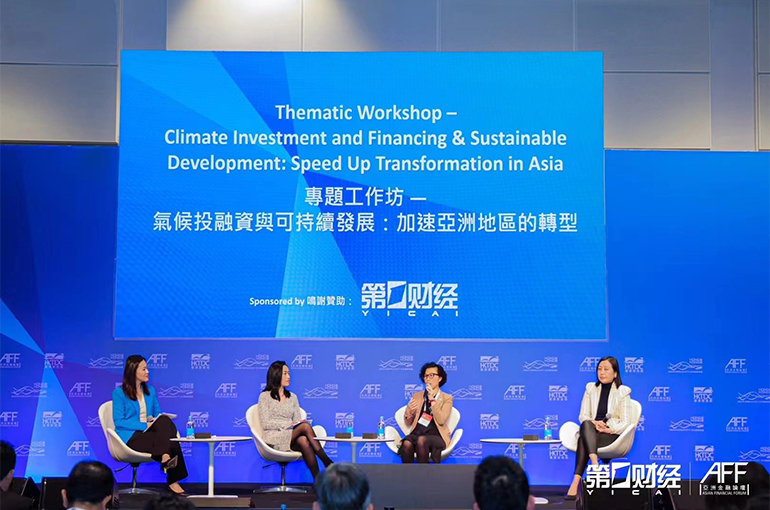 Asia’s Green Transition Is Creating More Investment Opportunities, Experts Say
Asia’s Green Transition Is Creating More Investment Opportunities, Experts Say(Yicai) Jan. 26 -- Asia, the most ecologically threatened continent, is undergoing a net zero emissions transition, which is generating opportunities for investment, experts said at a forum held by Yicai Media in Hong Kong yesterday.
Climate change will lead to high inflation, Xia Chun, chief economist at Forthright Financial Holdings, said at Yicai’s forum themed “Climate Investment and Financing & Sustainable Development: Speed Up Transition in Asia” which was part of the 17th Asian Financial Forum.
Climate change raises uncertainties about future returns on investment, which will cause public stocks, private equity as well as long-term and non-liquid assets to fall in valuation, said Xia, who is also a former finance professor at the University of Hong Kong.
However, climate change is not having an impact on government bonds or the real estate sector for now, Xia said. The valuation of natural resources will rise and investment in these resources will increase in the future.
Financial institutions should provide more support to traditional industries, especially those such as steel and cement that cannot be replaced by other materials, in order to speed up their low-carbon transition, said Huang Chaoni, managing director and head of sustainable capital markets in the Asia-Pacific region at French lender BNP Paribas.
The Guangdong-Hong Kong-Macao Greater Bay Area needs more than USD200 billion to reach peak carbon dioxide emissions by 2030 and USD1.8 trillion to achieve carbon neutrality by 2060, said Shelly Zhou, head of corporate sustainability at Hong Kong’s Hang Seng Bank.
Financial institutions in the Greater Bay Area need to focus on cutting carbon emissions, and to do so the Hengseng Bank requires teams knowledgeable about environmental, social and corporate governance, she added.
The Hong Kong Stock Exchange started to impose requirements on ESG reporting 10 years ago, and between 80 percent and 90 percent of firms listed in the special administrative region have published their ESG reports, said Sammie Leung, PwC Asia Pacific Regional ESG Services Partner.
“Investors are paying close attention to climate risks, whether it is risk control or launching investment products on climate, so ESG reporting is not only a compliance issue but also involves taking plenty of factors into consideration,” she said.
Multilateral actions should be taken to provide more money to cut greenhouse gas emissions so that the benefits of energy transition financing can be experienced as soon as possible, said Chen Sijie, chief executive of Yicai.
Editor: Kim Taylor